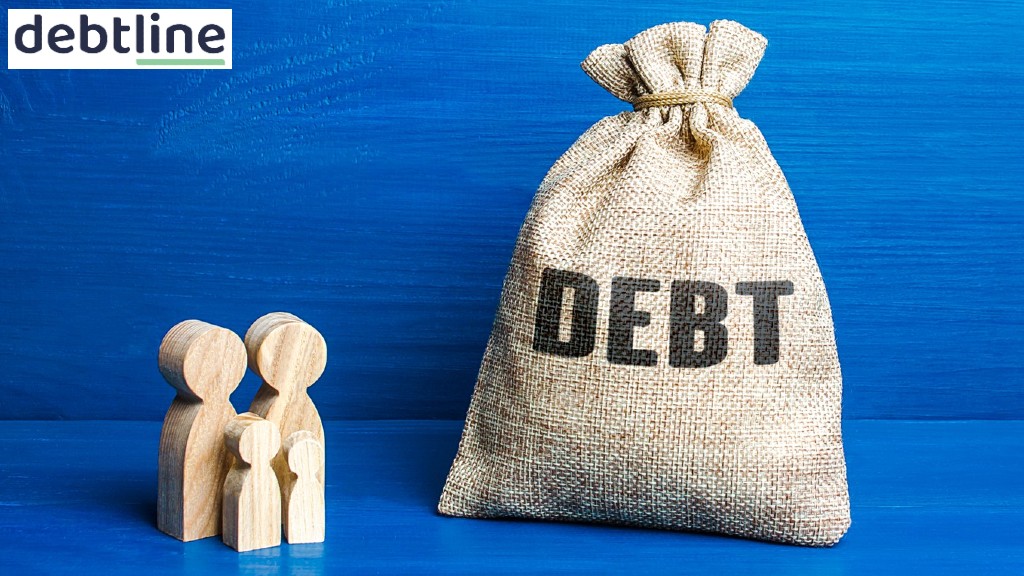7 Types of Debt in South Africa and How To Manage It

Debt is a common financial challenge for many South Africans, impacting many individuals and households. Understanding the different types of debt and the options available to manage and eliminate it is crucial for maintaining financial health.
This guide provides an overview of the different debt types in South Africa, including prescribed debt, and offers insights and advice on navigating and getting out of debt with the help of Debtline.
Secured Debt
An asset backs secured debt as collateral. If the borrower fails to pay, the lender can seize the asset to recoup the loss. Common examples include:
- Home Loans: Mortgages are long-term loans secured by real estate. Defaulting on a home loan can lead to foreclosure.
- Car Loans: Auto loans use the purchased vehicle as collateral. Failure to make payments can result in repossession.
Read: Are Loans for Debt Review Clients Legal?
Unsecured Debt
Unsecured debt does not require collateral, making it riskier for lenders and often resulting in higher interest rates. Examples include:
- Personal Loans: These loans can be used for various purposes and are granted based on creditworthiness.
- Credit Card Debt: This form of revolving debt allows ongoing access to funds up to a certain limit, but high interest rates can make it expensive if not managed properly.
Revolving Debt
Revolving debt involves a maximum credit limit the borrower can repeatedly borrow against and repay. Credit cards are the most common example, providing flexibility and the potential for high-interest charges if the borrower fails to settle the monthly balance.
Read: 3 Ways To Tackle Credit Card Debt
Student Loans
Student loans fund higher education expenses and are offered by the National Student Financial Aid Scheme (NSFAS) or private lenders. While enabling access to education, they contribute significantly to the debt burden of younger generations.
Retail Accounts and Microloans
- Retail Accounts: Store credit allows consumers to buy goods immediately and pay over time, often with interest.
- Microloans: Small, short-term loans aimed at low-income individuals, often with high interest rates and strict repayment terms.
Payday Loans
Payday loans are short-term, high-cost loans borrowed against the borrower’s next paycheck. While they provide immediate cash, their high interest rates can lead to a debt trap if not repaid quickly. These loan types are unsecured and based on an employer and employee agreement.
Read: Payday Loans 101 – Everything You Need To Know
Prescribed Debt
If a debt defaults and remains unpaid, it could become prescribed, meaning its repayment is no longer legally enforceable. Below, we discuss prescribed debt, how it works, and how to deal with it.
What is Prescribed Debt?
Prescribed debt refers to old debts that should be written off after a certain period, usually three years if the creditor does not take action to collect them. For a debt to be prescribed, the creditor must not have contacted the debtor, initiated legal action, or received any payment acknowledgements within the prescription period.
How Does It Work?
Debt must meet the following 3 conditions to become prescribed:
- The creditor has not demanded payment.
- No legal proceedings have been initiated.
- The debtor has not acknowledged the debt in writing.
If these conditions are met, the debt is legally considered extinguished, and the creditor cannot legally enforce repayment.
Read: A Complete Guide to Understanding Your Credit Score
Exceptions to Prescription
Certain debts do not prescribe, including:
- Home Loans: These have a 30-year prescription period.
- Municipal Debt: Obligations like electricity, tariffs, and taxes.
- TV Licenses: Debts last for 30 years.
- SARS-Related Debt: The South African Revenue Service actively pursues tax-related debts.
Dealing with Prescribed Debt
To address prescribed debt, you can follow the steps below.
- Obtain a Credit Report: Check your credit status from agencies like TransUnion or Experian.
- Dispute the Debt: Contact the creditor for proof of efforts to collect the debt within the prescription period.
- Notify Credit Bureaus: You can file a dispute to have prescribed debt removed from your credit report.
Managing Debt in South Africa
Consumers have several options for managing debt. Below, we briefly discuss debt review, debt consolidation, and the importance of choosing the right debt review company.
Debt Review
Debt review, or debt counselling, is a formal process for helping overly indebted consumers restructure their debt repayments. It involves working with a debt counsellor to negotiate reduced payments with creditors.
Read: The Complete Guide to Debt Review
The debt review process includes:
- Assessment: A debt counsellor assesses your financial situation.
- Negotiation: The counsellor negotiates with creditors to reduce payments.
- Revised Payment Plan: The lender and borrower agree on a proposed new payment plan, which is then implemented
Debt Consolidation
Debt consolidation involves taking out a single large loan to pay off multiple smaller debts. This loan can simplify repayments and potentially lower interest rates. Debt review loans and debt consolidation loans are available to those under debt review.
Choosing Debt Review Companies
Selecting reputable debt review companies, such as National Debt Advisors or National Debt Counsellors, ensures you receive professional assistance in managing and reducing your debt.
Read: 3 Common Misconceptions about Debt Review
Navigating the complex debt landscape in South Africa requires understanding the different types of debt and utilizing effective management strategies. Whether through debt review, consolidation, or professional counselling, viable solutions can help you regain financial control and work towards a debt-free life and a more secure financial future.
Debtline: Helping You Achieve Financial Freedom
Debtline offers comprehensive debt management services to help South Africans achieve financial stability. Their NCR-registered counsellors conduct thorough financial reviews, create budgets, and negotiate with creditors to reduce monthly payments.
Debtline’s Personal Finance Rescue services aim to prevent bankruptcy and insolvency, providing education and financial strategies for a debt-free future. If you need sound financial advice about your debt, fill out our online contact form for a free callback.